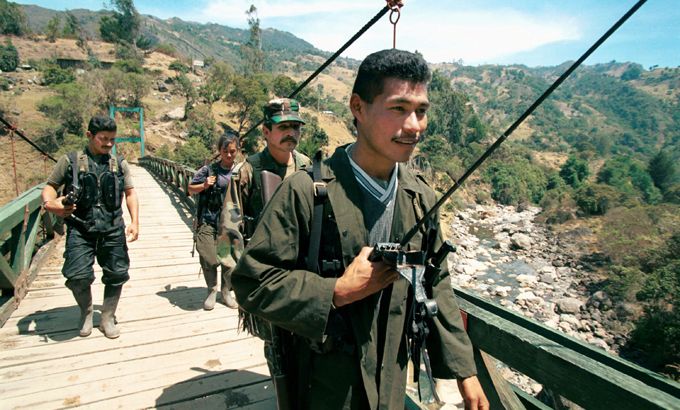Colombia refuses to extend FARC ceasefire
Despite notable drop in violence, government holds FARC guilty of multiple violations during two-month ceasefire.

Colombia’s FARC rebels have announced the end of a two-month unilateral ceasefire after the government refused to extend the truce.
The Revolutionary Armed Forces of Colombia (FARC) had been willing to extend the truce if the Colombian government signed a bilateral ceasefire accord, but President Juan Manuel Santos rejected that idea from the start.
“With heartache again we must admit the return of the military phase of the war, which nobody wants,” Ivan Marquez, FARC chief negotiator, said on Sunday.
Marquez, the FARC number two, urged the government to reconsider “the possibility of a bilateral ceasefire and cessation of hostilities, to surround the peace talks with a calm atmosphere”.
He said he was hoping for a settlement that could “spare greater suffering for the population.
“Colombian officials have portrayed the ceasefire as a negotiation tactic and Santos has warned the rebels against resuming guerrilla operations.
The government delegation, headed by Humberto de la Calle, former vice president, did not speak to reporters before Sunday’s talks.
Santos has said that the armed group only partially fulfilled its ceasefire pledge.
According to the military, it has registered at least 52 violations of the truce by the rebels over the past two months.
At the same time, New Rainbow Corporation, a Colombian think-tank dedicated to studying the conflict, reported at least nine battles initiated by the rebels since the beginning of the truce.
Both government and private specialists noted, however, a significant decrease in the overall levels of violence compared to the same period a year ago.
The negotiations between government and FARC officials resumed in Havana, the Cuban capital, earlier this month after a three-week holiday break with both sides pledging to quicken the pace of the talks in hopes of ending the conflict.